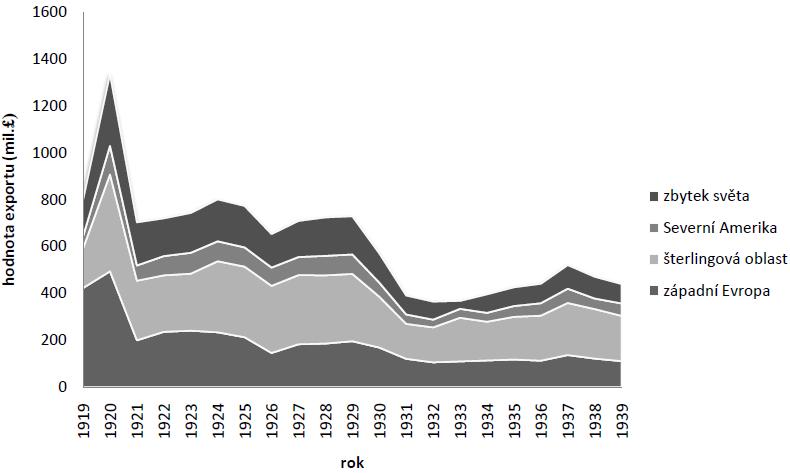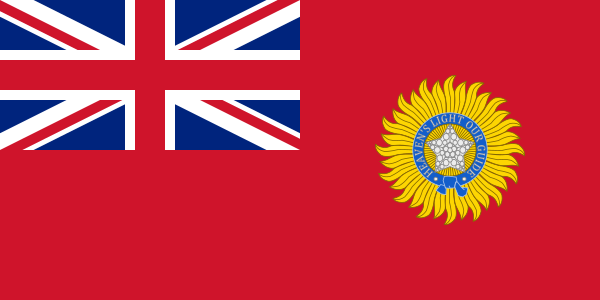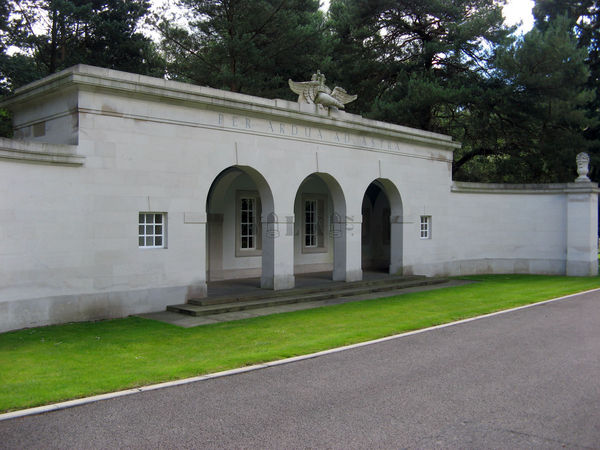United Kingdom of Great Britain and Northern Ireland (GBR)

A contribution to the study of the economic causes of British appeasement in the 1930s
The policy of appeasement is often criticized, either by experts or by public opinion. However, not all the circumstances behind its origin are generally known, and therefore a number of incorrect conclusions are drawn.

A contribution to the study of the economic causes of British appeasement in the 1930s 1.
1. The British policy of appeasement Appeasement is a policy that recognizes the principles of non-interference and non-influence of the internal affairs of other states. It seeks to find common ground and resolve conflicts in a moderate manner, which sometimes requires material forms of concessions. Opinions on him, however, vary widely. Some people see appeasement as a completely natural phenomenon that accompanies diplomatic relations, because in an effort to reach mutual understanding, it is clear that states sometimes have to compromise on their demands. Others, on the other hand, see it as a sign of weakness and inconsistent foreign policy.

A contribution to the study of the economic causes of British appeasement in the 1930s 2.
2. Developments after the First World War The First World War had a fundamental impact on the post-war image of Europe. It was officially ended after the signing of the armistice on November 11, 1918, but as the course of events itself showed, peace was just a short break from an even more terrifying conflict. The Great War did not solve the problems that led to its emergence. On the contrary, it brought with it great unemployment, which was caused mainly by soldiers returning home from the war. Shortly after its end, an epidemic of Spanish flu broke out, killing a huge number of people. The map of Europe has changed dramatically, many new states have emerged and, conversely, others have disappeared. The Bolshevik revolution broke out in Russia, and Europe feared that it might spread to neighboring states.

A contribution to the study of the economic causes of British appeasement in the 1930s 3.
3. Development of appeasement in the 1930s Ramsay MacDonald formed the second Labor government in 1929, but it was not very successful. Its hopes for smooth operation were dashed by the collapse of the New York Stock Exchange in the same year, which brought with it many problems that the government had to deal with. Before the stock market crash, Britain exported much of its production to the United States, but demand has now been severely shaken and declined, or in some markets even disappeared altogether. MacDonald's cabinet finally fell in 1931 because he was unable to agree on how to deal with the consequences of the crisis and what items to reduce the budget.

A contribution to the study of the economic causes of British appeasement in the 1930s 4.
4. British foreign policy and the crisis of appeasement The United Kingdom was forced to solve a number of foreign policy problems in the 1930s. Britain found itself on the brink of war with Italy after occupying the free state of Abyssinia and Japan, which occupied part of China's territory. For her concessions, especially to Italy, she was often criticized, but Germany was seen as a potentially greater threat and therefore could not antagonize the two states.

A contribution to the study of the economic causes of British appeasement in the 1930s: Conclusion
Conclusion The choice of appeasement policy was influenced by a number of factors. Whether it was the not very happily concluded Treaty of Versailles with Germany, or the lack of potential allies with whom Britain could form an effective alliance against Nazi Germany. Britain saw the priority in dealing with internal affairs and in good relations within its Empire. The British dominions sought to gain more and more independence, either in the area of free trade and their growing domestic markets, or in the area of greater decision-making powers. Dominia has made it clear that they will not allow themselves to be drawn into a war due to a small European state. For Britain, the empire was a large market for its products and served as a source of raw materials, so it had to take her opinion into account. Another role was played by public opinion, which wanted to avoid war at all costs and therefore encouraged the government to maintain good relations with Germany.

A contribution to the study of the economic causes of British appeasement in the 1930s: Introduction
Introduction The policy of appeasement is often criticized, either by experts or by public opinion. However, not all the circumstances behind its origin are generally known, and therefore a number of incorrect conclusions are drawn.

Battle of Britain
The Battle of Britain is the first purely air battle in the history of war. Its entire course took place only in the air, where it was also decided on the result. As it is named today, it was called Winston Churchill, who after the defeat of France declared: "The battle for France is over. I expect the battle for Britain to begin. " And history proved him right, indeed less than a month after the signing of the armistice between France and Germany, the RAF and the Luftwaffe fought in British skies.

Battle of Britain
Luftwaffe Between September 1939 and the summer of 1940, the German war machine rolled over much of Europe, and its blitzkrieg can certainly be considered effective. The Luftwaffe played an undeniable role in these victories. However, she always fought as part of the German war units. As in Poland and the Western campaign, it was faced with the task of gaining air superiority, but it is very important to realize that this happened at the same time as the Wehrmacht's advance. The Battle of Britain was to be different. The Luftwaffe first had to fight for air superiority on its own, and then it was Wermacht's turn.

Battle of Britain
In any battle, the outcome depends not only on good military leadership, but also on the technical capabilities of the weapons. It was in the Battle of Britain that it became clear how small technical differences could play a big role. Therefore, let us now look at what the Luftwaffe had at the time of the battle.

Battle of Britain
The task of the RAF was to resist the German attack and at the same time retain sufficient strength to defend in the event of an invasion of the British Isles. On her side stood tenacity, the desire to defend the homeland or fight the hated Luftwaffe, and the desire to persevere to a victorious end. The Battle of Britain was one of the decisive battles of World War II. St. v. and in the event of the defeat of Britain in this encounter, it is very likely that the face of Europe would look quite different today. Many of those who fought in this battle were well aware of this. Today, we can only look with admiration and respect at the men who made several combat sorties a day and often returned to their troops the same day after being shot down to take to the skies again to fight the Nazi threat.

Battle of Britain
In addition to the aforementioned Supermarine Spitfire Mk I and Hawker Hurricane Mk I, the RAF Fighter Command also used the Boulton Paul Defiant Mk I and the Bristol Blenheim MkI modified as a heavy (mostly night) fighter to defend the islands. The Spitfire and Hurricane make up the vast majority of all fighters, with the Hurricanes dominating the majority. Both types were justifiably very popular with British pilots.

Battle of Britain
The battle began on July 10 and ended on October 31, 1940, culminating on September 15. In various sources we can meet the dating of the battle mostly from July to October 1940, but sometimes also from August to October or December 1940.

Battle of Britain
Contents The Battle of Britain is the first purely air battle in the history of war. Its entire course took place only in the air, where it was also decided on the result. As it is named today, it was called Winston Churchill, who after the defeat of France declared: "The battle for France is over. I expect the battle for Britain to begin. " And history proved him right, indeed less than a month after the signing of the armistice between France and Germany, the RAF and the Luftwaffe fought in British skies.

Battle of Britain
The turning point that separates Phase 1 from Phase 2 is the Adler Tag. The German command set this day as the day when the RAF was to be brought to its knees and completely paralyzed in the next few days. The optimism prevailing among the German leaders was mainly due to a lack of information about the strength of the opponent.

Battle of Britain
A massive attack is planned for the first day. The weather has been very good since the morning, promising a challenging day for both parties.

Battle of Britain
Perhaps one of the readers is wondering why it is necessary to talk about a fourth phase, when it was already clear at the beginning of October that there would be no invasion.

Preceding State Formations
📂︎
0 topics
📝︎
0 posts total
📖︎
0 articles
▦︎
0 topics with valid template

Country
📂︎
4 topics
📝︎
4 posts total
📖︎
0 articles
▦︎
4 topics with valid template

Crown Dependencies
📂︎
41 topics
📝︎
74 posts total
📖︎
0 articles
▦︎
36 topics with valid template

Regions
📂︎
8 topics
📝︎
8 posts total
📖︎
0 articles
▦︎
8 topics with valid template

Ceremonial Counties
📂︎
46 topics
📝︎
48 posts total
📖︎
0 articles
▦︎
45 topics with valid template

Council Areas
📂︎
50 topics
📝︎
50 posts total
📖︎
0 articles
▦︎
50 topics with valid template

Districts (Boroughs) and Unitary authorities
📂︎
50 topics
📝︎
50 posts total
📖︎
0 articles
▦︎
50 topics with valid template

Cities and Villages
📂︎
720 topics
📝︎
817 posts total
📖︎
1 article
▦︎
579 topics with valid template

Industry
📂︎
183 topics
📝︎
200 posts total
📖︎
0 articles
▦︎
177 topics with valid template

Military Objects
📂︎
921 topics
📝︎
1.052 posts total
📖︎
2 articles
▦︎
590 topics with valid template

Military Cemeteries
📂︎
1 topic
📝︎
3 posts total
📖︎
1 article
▦︎
1 topic with valid template

Fortifications
📂︎
2 topics
📝︎
13 posts total
📖︎
0 articles
▦︎
2 topics with valid template

Castles, Chateau, Strongholds
📂︎
7 topics
📝︎
16 posts total
📖︎
0 articles
▦︎
7 topics with valid template

Museums
📂︎
14 topics
📝︎
67 posts total
📖︎
0 articles
▦︎
5 topics with valid template
Join us
We believe that there are people with different interests and experiences who could contribute their knowledge and ideas. If you love military history and have experience in historical research, writing articles, editing text, moderating, creating images, graphics or videos, or simply have a desire to contribute to our unique system, you can join us and help us create content that will be interesting and beneficial to other readers.
Find out more